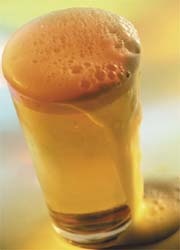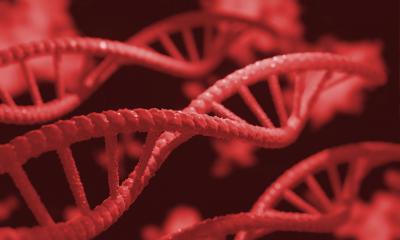Alcohol ups colon cancer risk
But wine's a lesser problem
Denmark - Regular drinkers significantly increase their risk of rectal cancer, but that risk is reduced if wine makes up a third or more of weekly consumption, according to research carried out by Professor Morten Grønbaek, at the Centre for Alcohol Research, National Institute of Public Health, Copenhagen, published in the journal GUT.

The weekly intake of beer, wine, and spirits was assessed, along with factors likely to influence bowel cancer risk (e.g. tobacco, weight, exercise) among over 29,000 Danish men and women aged 23-95 years.
Men were more likely to be heavy drinkers than women, and heavy drinkers were more likely to smoke and weigh more than light drinkers.
Monitored for almost 15 years, 411 cases of colon cancer and 202 cases of rectal cancer were reported. Alcohol seemed to have little influence over the risk of colon cancer, but there was a clear association between rectal cancer risk and the amount of alcohol consumed. Those drinking over 41 units a week had twice the risk of developing the disease as non-drinkers.
But the type of alcohol consumed had a significant bearing on rectal cancer risk. Those who drank 14+ units of beer or spirits weekly were over 3.5 times more likely to develop rectal cancer as non-drinkers. Yet those who drank the same amount of alcohol, but who included about a third or more of wine in their intake were less than twice as likely to develop the disease.
The professor points out that wine drinkers tended to be better educated and to take more exercise than beer or spirit drinkers, so other lifestyle factors may be involved. There are no obvious reasons why alcohol should apparently be more damaging to the rectum than the colon, they add, but the reasons why wine seems to exert its protective effect most likely lie in resveratrol - found in both grapes and wine. Previous research indicates that this chemical dampens cellular processes involved in the promotion and growth of cancerous cells.
* GUT. 2003; 52: 861-7.
Details: Prof. Grønbaek: mg@niph.dk.
01.07.2003











